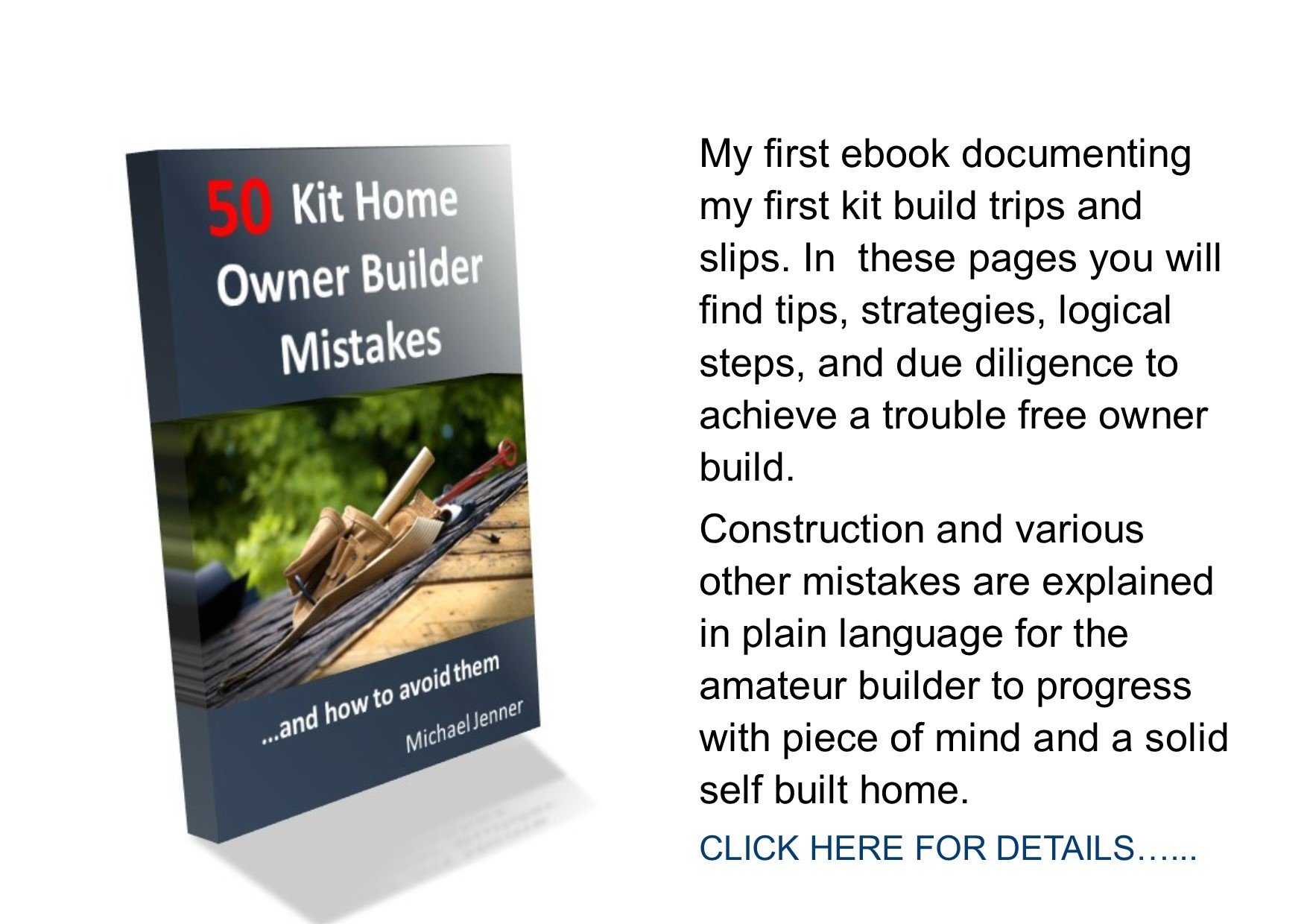Sustainable home builders tell council to step up
by Alexia Russell
(www.newsroom.co.nz)
Auckland Council likes to make a song and dance about sustainability. "Get free advice on how to make your business more sustainable"; "Conserve energy, reduce waste and make smart choices to minimise harmful effects on the environment"; "Hire a home energy audit tool kit" - there's even a Chief Sustainability Officer. But when it comes to being confronted by home builders who are ahead of the game, the council's sustainability front crumbles like an old sea wall on an incoming climate change tide.
Rochelle and Joel Payne are trying to build the first home in New Zealand to achieve a triple check in sustainability - going for Living Building Challenge certification, Passive House certification, and a 10 Homestar rating. All require different aspects and standards of self sufficiency when it comes to off-grid living, but many of the requirements dovetail. Rochelle is a construction project manager and engineer and sustainability consultant at the Building Excellence Group who is living her convictions.
Well she's not quite living in them yet, with the family hunkering down in a bach in Beachlands while they try to get their rammed earth, four-bedroom home, and a one-bedroom apartment built. It's behind schedule for many reasons, not least of which is this year's constant rain, but one of which is the bogged down, multi-layered, left-hand-doesn't-know-what-the-right-hand-is-doing structure of the Auckland Council. Payne stresses that individual staff have been wonderful trying to help them through the complex consent process - "we've had lots of support in lots of different ways" - but the family has been put through the administrative wringer, having to apply to three different departments for the three types of consents required.
One of her mistakes was thinking she could email a resource consent completion application in. After two months when she hadn't heard back she realised it had gone into a black hole - instead of being put on the right road the application just disappeared. "There's been a huge debacle around resource consent," she says. For example - when they finished their subdivision and booked the final building inspection, they gathered together (and paid for) assorted experts to be on site and waited in vain for the council inspector to appear. It turns out he was sick and no arrangements had been made to replace him or put the appointment off. In isolation it was a small thing perhaps, forgivable - but for the Paynes it was a symptom of the way the council bureaucracy operated. "It was a farce in many ways."
As well as resource consent and building consent, the Paynes required a discharge consent because part of their plan is to live without having to connect to sewerage or stormwater systems. There will be a composting toilet, rainwater collection and greywater disposal plans via a specially-planted garden that is already in place. Payne says they were advised by an Auckland Council planner that their project would probably cost a lot more to consent - they had to bring in technical specialists and were told they may also have to pay for an independent specialist to review the scheme - spending thousands more than they'd budgeted for. What really hurt was that they were being charged development contributions specifically for discharging waste into the city's stormwater system when they were trying to deal with all their own stormwater and wastewater on site.
The Paynes successfully argued their way out of that eventually, Rochelle saying she doubts it's even legal to charge a fee for a service not being provided.
"My guess is they were scared," she says. "Just putting a council hat on - they are in the situation where someone wants to discharge water into their own site. The council wants to know what happens if something goes wrong, and in 15 years they start getting complaints from the neighbours about overflows. But the council should start from the premise that this is great; let's see if we can get this approved for you ... instead of saying it's going to cost you thousands of extra dollars. It took me eight months of going back to answer loads of extra questions just to demonstrate the design was sound. When consent was granted the original design hadn't changed."
Payne says Auckland Council should be encouraging and promoting sustainable building, especially if the exemplary sustainable houses are proposing to reduce their contribution to the overloaded Auckland Infrastructure. "Instead it appears that Auckland Council is trying to make it harder and more expensive for home owners to follow this type of path."
When it came to the last hurdle, the building consent, a third branch of the Council asked the Paynes to detail once more and prove again that their stormwater plan would work - something they had already done twice before. "I refused," says Rochelle. "I think they were getting sick of me by then."
Rochelle has launched a petition to get the Council to have a re-think over the whole issue, hoping it will become more proactive when it comes to such fresh thinking, and calling for certain fees to be reduced or waived to encourage sustainable building. She says consent fees and development contributions should be waived for anyone meeting Living Building Challenge certification (she estimates in Auckland that would be maybe one house every three years) and a 50 percent reduction in fees and contributions for 9 and 10 Homestar rated houses (there are currently just five 10 Homestar rated homes in New Zealand).
In an open letter to the mayor Rochelle says: "Auckland Council has no regulations or incentives to encourage any sustainable building within the city. Since Auckland needs to build up to 400,000 new dwellings by 2040, this is appalling. The development of such a large quantity of dwellings is going to put an extremely heavy load on existing infrastructure (power supply, water supply, sewage and stormwater) and Auckland Council should therefore be doing everything possible to try and reduce this load."
Until now Rochelle has hoped the council would seize the opportunity to "walk the walk" and come out in strong support of sustainable development. However she has now been sent a letter advising fee reductions aren't going to happen.
"I believe we are breaking new ground here: we are making the road easier for those who come next," she says. "It's costing us a lot of money which is why I'm asking the council to step up here. Auckland Council could set this policy - it's an aspirational policy - to say 'let's aim to reach high (on sustainability) and if you step up to the plate, here is how we will help you'.
"At the moment they talk about sustainability but when someone comes up with these ideas they say 'No thanks'. When it comes to action, they don't want to know."
If you want to find out more about the project, Rochelle has been keeping a blog, and has a Facebook page.
..................
Auckland Council's Acting Director of Regulatory Services, Grant Barns, replies:
Developers pay a development contribution for each new development they undertake, regardless of the size and scale. Development contributions pay for the new transport, stormwater, parks and community infrastructure needed to service these developments.
Sustainable housing design may reduce the need for stormwater infrastructure. Where this is the case, the council is able to reduce the development contribution accordingly.
However, sustainable housing design doesn’t reduce the demand for transport, parks and community infrastructure. If we were to reduce development contributions to promote the other benefits of sustainable housing, we would be required to find this funding for infrastructure elsewhere.
Auckland Council’s Low Carbon Auckland Action Plan recognises sustainable buildings as an important part of Auckland’s low carbon transition and acknowledges the broader benefits of delivering efficient, healthy and comfortable homes. Auckland Council is currently looking into options to incentivise best practice sustainable design in order to meet targets set out in the Low Carbon Auckland Action Plan, including 95 per cent of new and existing housing meeting sustainable design standards equivalent to an 8 Homestar rating by 2040.
We have also been rolling out a series of online improvements to shift to a full online building and resource consent service.
Our Consenting Made Easy programme will allow us to tailor our services to meet individual needs, and make it easier for customers to work with us on their projects.
This includes the ability to lodge and pay for applications online, upload all supporting information, track progress and manage consents using an online dashboard and apply for code compliance certificate. Customers will be able to use an online tool to work out whether or not they need a consent for a simple project.
Moving to an online channel means greater convenience and transparency for customers as they will be able to see, at any point, what stage their application is at and what will happen next.
An improved consenting website will be released in late August, along with further online forms and improvements to the online platform.
Join in and write your own page! It's easy to do. How? Simply click here to return to News portal.



